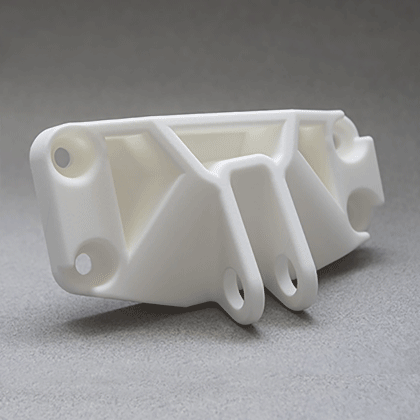The world of manufacturing has been revolutionized by the advent of 3D printing. One particular technology that has gained significant attention is Selective Laser Sintering (SLS) 3D printing. SLS 3D printing offers a wide range of possibilities and has the potential to transform various industries. In this article, we will delve into the potential of SLS 3D printing in various industries and explore the exciting opportunities it presents.

Enhancing Product Development and Prototyping
One of the key advantages of SLS 3D printing is its ability to rapidly produce prototypes and iterate designs. Traditional manufacturing methods often involve lengthy and costly processes, but with SLS 3D printing, designers can quickly create functional prototypes. This allows for faster product development cycles and enables companies to bring their ideas to market more efficiently.
For example, in the automotive industry, SLS 3D printing can be used to create prototypes of new car parts. Engineers can test the fit, form, and function of these parts before committing to expensive tooling. This not only saves time and money but also allows for design optimization and innovation.
Customization and Personalization
SLS 3D printing opens up a world of possibilities for customization and personalization. With this technology, it is possible to create unique and tailored products that meet individual customer needs. This is particularly valuable in industries such as healthcare and consumer goods.
In the healthcare industry, SLS 3D printing can be used to create custom prosthetics and orthotics. Each patient has unique requirements, and traditional manufacturing methods often struggle to meet these demands. SLS 3D printing allows for the production of personalized medical devices that perfectly fit the patient's anatomy, improving comfort and functionality.
Reducing Material Waste and Environmental Impact
SLS 3D printing is known for its ability to minimize material waste. Unlike traditional subtractive manufacturing methods, where excess material is often discarded, SLS 3D printing only uses the necessary amount of material to build the object. This not only reduces costs but also has a positive environmental impact.
Furthermore, SLS 3D printing enables the use of recycled materials. By using recycled powders, companies can reduce their reliance on virgin materials and contribute to a more sustainable manufacturing process. This is particularly relevant in industries that produce large quantities of waste, such as aerospace and consumer electronics.
Expanding Design Possibilities
SLS 3D printing allows for the creation of complex geometries that are difficult or impossible to achieve with traditional manufacturing methods. This opens up new design possibilities and enables the production of innovative products.
In the architecture industry, for example, SLS 3D printing can be used to create intricate models and structures. Architects can explore unique designs and test their feasibility before committing to construction. This not only enhances the creative process but also improves the efficiency and sustainability of building projects.
Overall, the potential of SLS 3D printing in various industries is vast. From enhancing product development and customization to reducing material waste and expanding design possibilities, this technology offers numerous benefits. As the technology continues to advance, we can expect even more exciting applications and innovations in the future.







